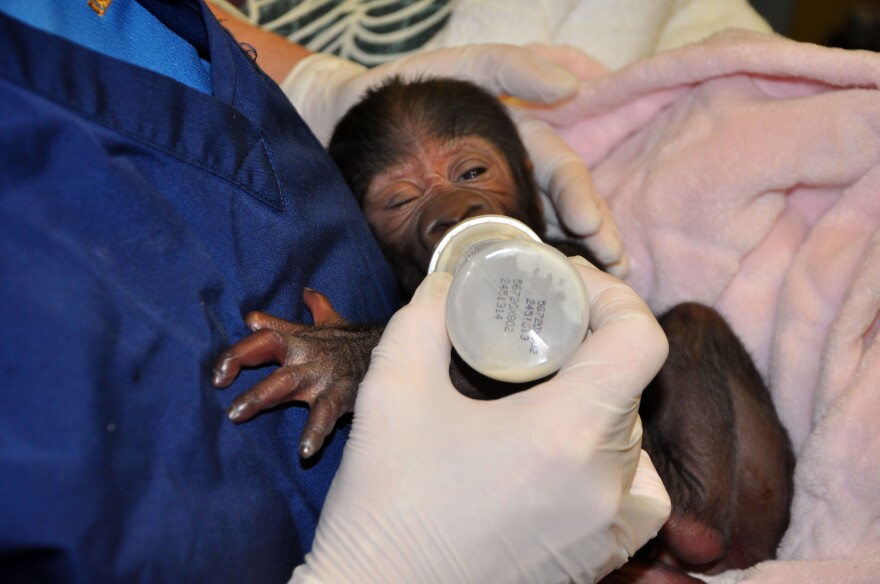The future of a baby gorilla born yesterday at the Louisville Zoo is unknown after its mother died earlier today from complications with the birth.
Gorilla Mia Moja died this morning, less than a day after delivering the baby several weeks early via emergency cesarean section. The baby — a female who weighed 3 pounds and 9 ounces at birth, close to the average size of a full-term gorilla baby — survived and is in stable condition.
Louisville Zoo Assistant Director of Conservation Steven Taylor said the call was made to perform an emergency C-section after Mia was found in distress and bleeding yesterday afternoon. The birth was performed by two local OB/GYNs and assisted by veterinarians.
Now, Taylor said, the focus turns to the newborn gorilla and making sure she survives.
“She’s doing very well,” he said. “She was almost full-term size, so that’s a really good thing for her, and she’s done well overnight. We have a staff member with her 24 hours a day, and she’s been nursing" with Similac.
Taylor said the zoo hasn’t decided what the future for the baby will be. The baby’s father is Mshindi, and his group has two other females. Taylor said it’s possible one of them will adopt the new baby.
“There are some gorillas that tend to be very maternal, they just like to be able to carry babies around,” he said. “So, we’ll evaluate the females that we have.”
Or the baby could be moved to another zoo.
“We’re in conversation with gorilla experts all over the country, in terms of the big picture, what to do as we move forward,” Taylor said.
Western lowland gorillas are listed as a critically endangered species, with only about 100,000 left in the wild. About 350 live in North American zoos.

